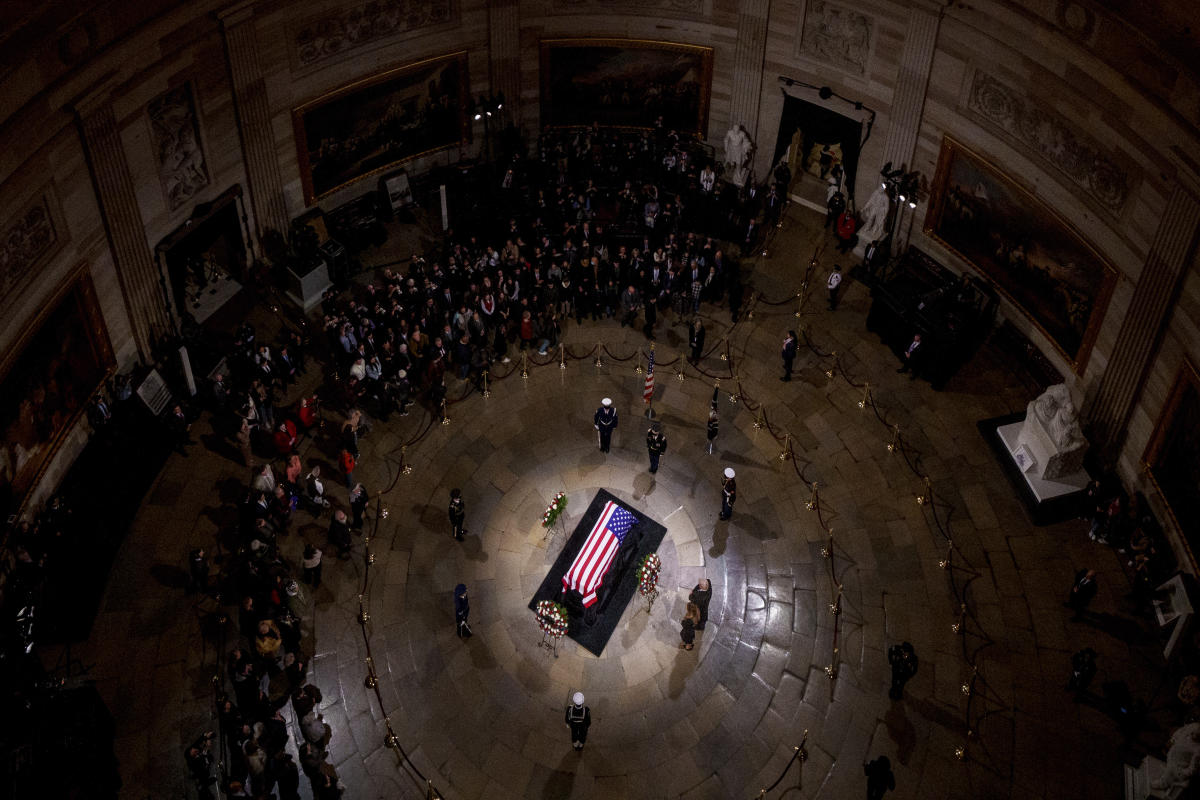President-elect Donald Trump on Wednesday asked the Supreme Court to block criminal proceedings in his hush money case in New York, with a sentencing hearing scheduled for Friday.
The court has asked New York prosecutors to respond to Trump's request by Thursday morning, giving the justices time to act before the sentencing proceeding.
"This Court should enter an immediate stay of further proceedings in the New York trial court to prevent grave injustice and harm to the institution of the Presidency and the operations of the federal government," Trump's lawyers wrote in the new filing.
They argue that the case should not go forward because Trump was protected by presidential immunity, as recognized by the Supreme Court earlier this year.
"The Supreme Court’s historic decision on Immunity, the Constitution, and established legal precedent mandate that this meritless hoax be immediately dismissed," Trump spokesman Steven Cheung said in a statement.
The Manhattan district attorney's office did not immediately respond to NBC News' request for comment.
On Tuesday, a New York appeals court judge declined to block the sentencing.
Trump was convicted in May of falsifying records related to hush money that his then-attorney Michael Cohen paid adult film star Stormy Daniels in the closing days of the 2016 presidential election. Daniels testified she had a sexual encounter with Trump in 2006, a claim he has denied.
Trump's lawyers argue that some evidence at trial focused on official actions he took while in the White House. They also take the unprecedented step of saying that a president-elect should have the same protection from criminal prosecution that a sitting president has.
Judge Juan Merchan, who presided over the trial, initially postponed Trump’s scheduled sentencing in July in the wake of the Supreme Court’s ruling setting a new standard for presidential immunity that month.
But Merchan later concluded Trump does not have immunity until he is sworn in as president. He then directed Trump’s sentencing on 34 felony counts of falsifying business records to take place Friday morning.
The Supreme Court's contentious presidential immunity ruling came in the separate case in which Trump was charged with seeking to overturn the 2020 presidential election results. With Trump about to become president again, that case has now been dropped.
The court ruled that certain official acts taken by presidents are off-limits for criminal prosecution. Actions taken by a president in their personal capacities would not be protected.
Trump's Supreme Court request was filed by lawyer D. John Sauer, whom the president-election intends to appoint as solicitor general, his administration's top courtroom advocate. Another Trump lawyer listed on the filing, Todd Blanche, is Trump's pick to be deputy attorney general.
This article was originally published on NBCNews.com

 German (DE)
German (DE)  English (US)
English (US)  Spanish (ES)
Spanish (ES)  French (FR)
French (FR)  Hindi (IN)
Hindi (IN)  Italian (IT)
Italian (IT)  Russian (RU)
Russian (RU) 























Comments